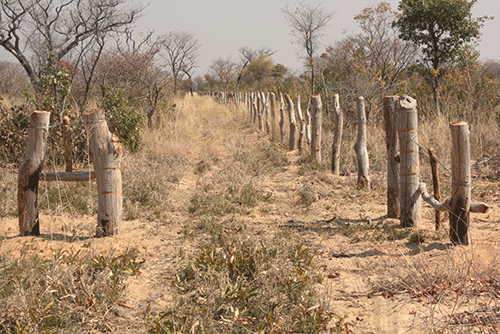ONGWEDIVA – The Ministry of Agriculture, Water and Land Reform has raised concern over illegal fencing of communal land, especially in the northern regions.
In a presentation to the Council of Traditional Authorities meeting held last week in Eenhana, Kenneth Shoombe of the ministry said that illegal fencing of communal land is a challenge in most regions, as large areas of grazing land are being fenced.
Due to that, the authorities proposed a fine increase for illegal fencing in the communal areas.
The fine has been increased from N$4 000 to N$15 000.
This proposal is incorporated into the long-awaited Land Bill that is currently before parliament.
This land bill aims to promote an efficient and transparent unitary system of land administration in Namibia.
One of its main objectives is to make provisions for the acquisition of agricultural land by the State for the purposes of land reform.
It also aims to address the allocation of such land to disadvantaged Namibian citizens who do not own or have limited access to adequate agricultural land due to discriminatory laws or practices.
According to Shoombe, the increased fines for illegal fencing and the law enforcement agencies should assist the traditional authorities on the removal of illegal fences.
The provisions for fines for illegal fencing on communal land is provided for under Section 60 of the Bill, the same section is expanded to include spot fines to those found to be illegally fencing communal areas.
“Traditional authorities and communal land boards are empowered by the Act to cause the removal of illegal fences,” he said in his presentation.
According to statistics from the ministry, 107 illegal fences with an accumulated 30 826 hectares were removed prior to the Second National Land Conference that was held in 2018.
Of these fences, 57 were removed in Otjozondjupa, 18 (Omaheke), 17 (Ohangwena), and 15 in the Omusati region.
Currently, about 18 illegal fences cases are being handled by communal land boards, of which 11 are in the Kavango West region, four in Ohangwena, and three reported in the Kavango East.
In an effort to help curb illegal fencing, the ministry will commence with awareness campaigns next month.
Shoombe also said budgetary provisions have been made for the removal of illegal fences in all regions.
“The ministry has awarded the tender to the National Youth Services for the removal of illegal fences in Ohangwena, Kavango East, and Kavango West,” he added.
Upon his election as the chairperson of the Council of Traditional Authorities over the weekend, chief Immanuel /Gaseb also told this publication that he will dedicate his time on resolving illegal fencing as one of the causes of border conflicts between traditional authorities.
– ashikololo@necp.com.na


